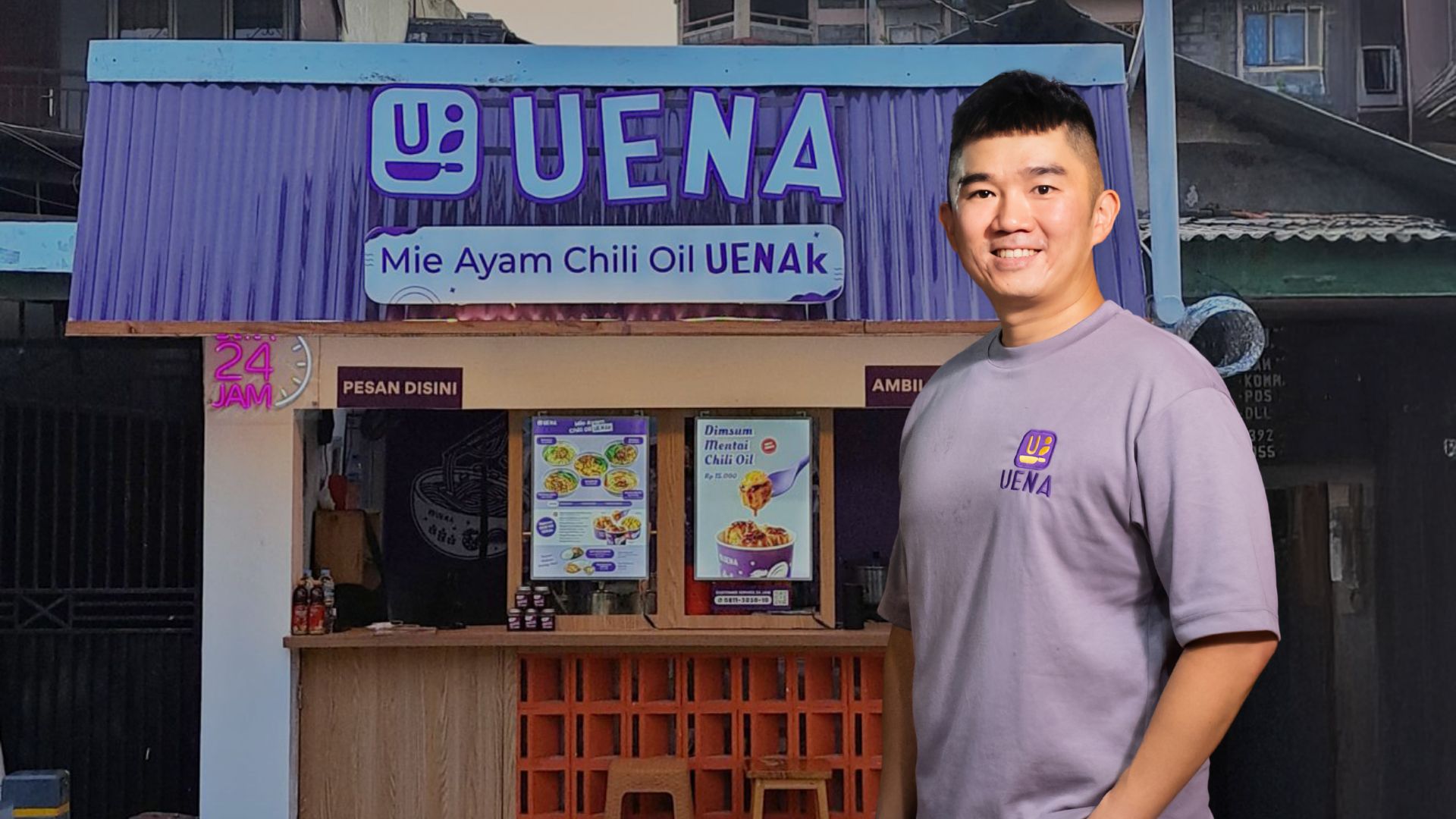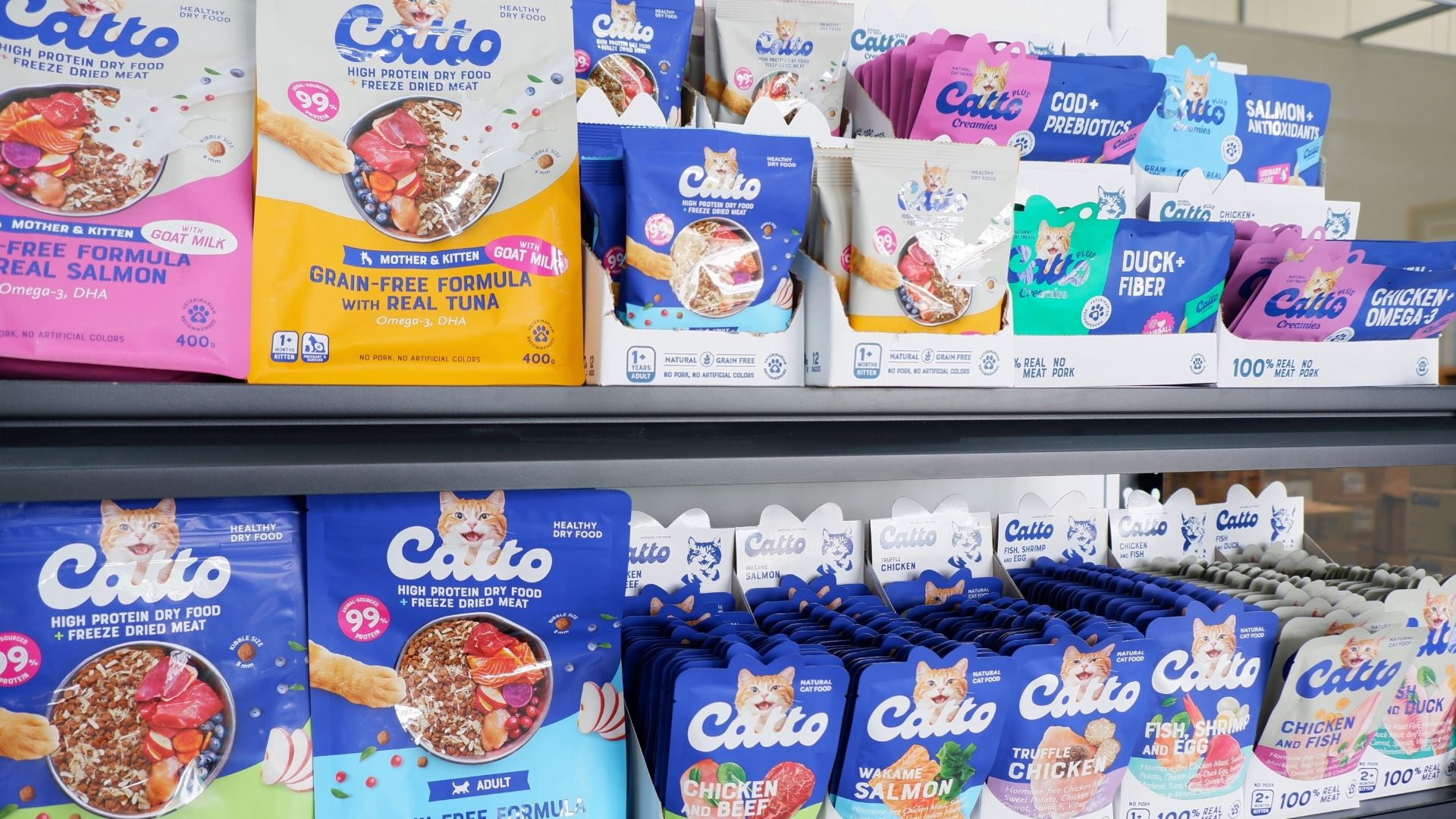Let’s start with the why: Indonesia is home to a burgeoning, digitally savvy urban middle class. This mass market, which makes up the largest segment—167 million people—allocates more than half of its expenses on food.
The F&B (Food & Beverage) industry in Indonesia is a cornerstone of the economy, but it is highly fragmented. Consumers, particularly in dense urban areas, face a daily challenge: finding food that is not only delicious and affordable but also hygienic and reliable.
The daily food landscape is a particular case, as most organized F&B players cater to the middle and upper segments with prices above US$3 per meal, leaving the mass market dependent on highly varied mom-and-pop options.
This is the gap UENA is solving by offering US$1 meals from small, tech-enabled kiosks located deep inside neighborhoods—where more than half of residents no longer cook at home—UENA is redefining how daily food is served.
Founded by Alvin Arief and Roy Yohanes, UENA is a tech-enabled, hyperlocal F&B startup. Its mission is to solve the daily food problem for the Indonesian mass market by providing high-quality, accessible meals.
“For UENA, what we are most excited about is our accessibility,” says Alvin Arief, Co-Founder and CEO of UENA. “We want daily, delicious, healthy, and hygienic food to be accessible to everybody. It is accessible at an affordable price—our price starts from 80 cents. It is also accessible through location, as it is very hyperlocal, and through availability, because we are open 24/7.”
UENA is now expanding its shacks/kiosks with a grab-and-go model, bringing reliable, hygienic meals directly to where people live, work, and move.
However, achieving this triple kill of quality, cost, and convenience at scale is not just about having good recipes. It is about building a sophisticated operational machine.
Behind UENA’s affordable menu: A tech-enabled kitchen
When asked about the technology behind UENA, Alvin is quick to make a distinction.
At UENA, we are not a pure tech company, but instead we are a tech-enabled company.
This distinction is key. UENA’s technology is not the product, but rather the engine that enables its promise of accessibility.
This engine is built on a foundation of data and automation. “Number one is data; we are rich in operational and customer preferences data,” Alvin notes. “We use that data to do a lot of automation and optimization, and we try to implement AI as well to improve the productivity of our operation.”
This tech stack extends from software all the way down to the physical kitchen. Because UENA serves physical goods, it leverages a suite of hardware solutions to ensure consistency and efficiency.
Alvin elaborates, “We also have a lot of tech related to physical goods and machinery, such as IoT, KDS (Kitchen Display System).”
This system enables a streamlined, data-driven workflow from order placement to delivery. The KDS, for example, efficiently routes orders, while IoT sensors monitor equipment and inventory. This relentless focus on optimization extends all the way to the food production level.
“We are experimenting with a machine for automating the sauce production for the noodles,” Alvin shares.
By automating repetitive tasks, UENA reduces errors, controls costs, and ensures that a customer in one location gets the exact same high-quality meal as a customer in another.
This tech-enabled model enables UENA to operate 24/7, maintain low prices, and deliver on its promise of hygienic, reliable daily food.
Lessons from Alvin Arief on building a resilient startup
Building a company that merges the complex worlds of F&B and technology is a formidable challenge. For Alvin, the journey has been filled with critical lessons, many of which he learned the hard way.
His most valuable—and most challenging—lesson? The supreme importance of product-market fit (PMF).
“We learned the importance of product-market fit the hard way,” Alvin admits. “Especially in the early stages of a startup, we always try to balance product-market fit with growth and scale-up. But we learned that PMF is much more important than the scale-up.”
In an environment where “growth” is often the loudest metric, Alvin warns against the temptation to scale prematurely.
“When you scale up prematurely, sometimes it fails horribly. Or, even worse, you try to cover up your mistakes or your weak product-market fit through unhealthy growth.”
This hard-won wisdom has shaped his advice for other founders: be honest.
“One thing we learned a lot is how to be very honest and transparent, especially with ourselves, about product-market fit and how to make a real product-market fit before we pursue growth.”
This philosophy of patience and retention over vanity metrics is the advice he would give his younger self.
“If I could go back, I would try to slow down a little bit more in the beginning to make sure that product-market fit actually works. The most important thing is retention—whether the customers use your products, whether they repeat, whether they love your products.”
This focus on the user also corrected his earliest assumptions. His most unexpected challenge, he reveals, was realizing he had the wrong starting point.
“We started with the market landscape and the opportunity. But it turned out that the customer persona and the real use case of the users are more important.”
Building a company, especially one as operationally intensive as UENA, is a journey of constant learning and adaptation. “We are trying to play catch-up to serve the trend and the needs of the customers,” Alvin says, noting that external factors like inflation and supply chain shifts are things they are “trying to learn and adapt to as things go.”
This resilience is not built in a vacuum. For Alvin, being part of a larger founder community has been a critical support system.
One thing I really appreciate about East Ventures is not only the investment but also the community.”
“In East Ventures, we have a lot of colleagues, and many of them are way ahead of us. But we realized that at one point, they were in our shoes,” he shares.
That shared experience, he notes, is invaluable. “Knowing that is very valuable for learning from their experience. It is also an encouragement that if they could do it, we can do it as well.”
As UENA continues to scale its tech-enabled kitchens to serve millions of Indonesians, Alvin looks forward to contributing to that same cycle of growth.
“What I look forward to most in the future,” he concludes, “is to see the ecosystem grow, develop, and evolve into something that is impactful, sustainable, and scalable at the same time.”








